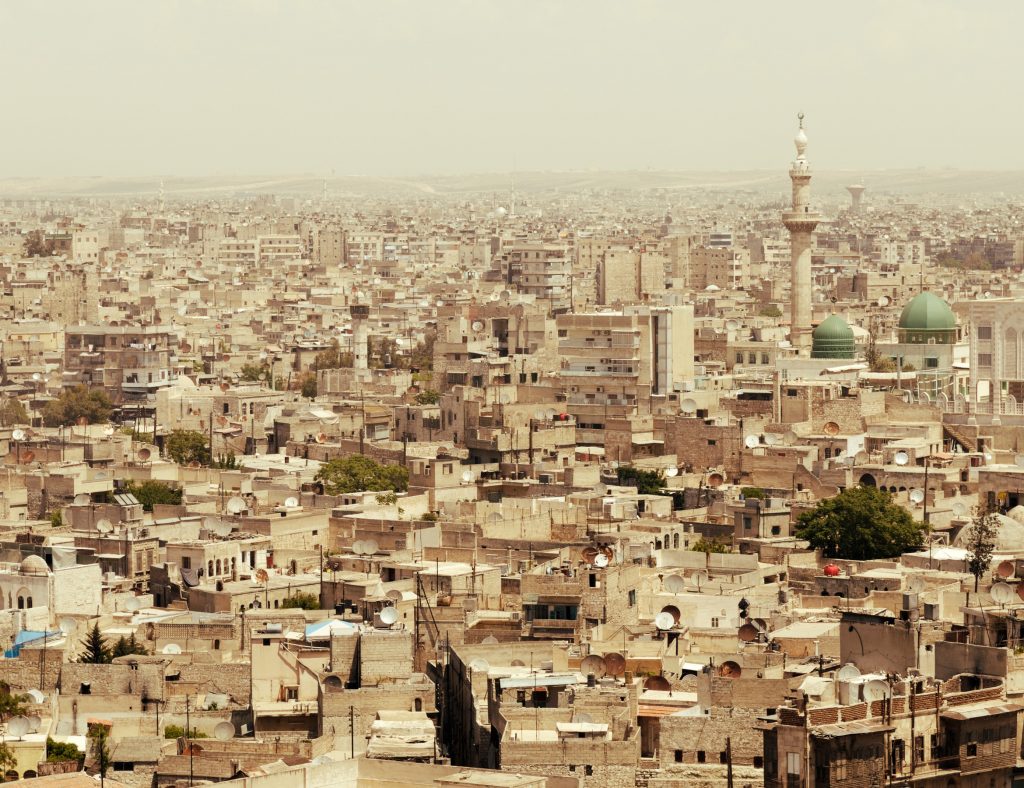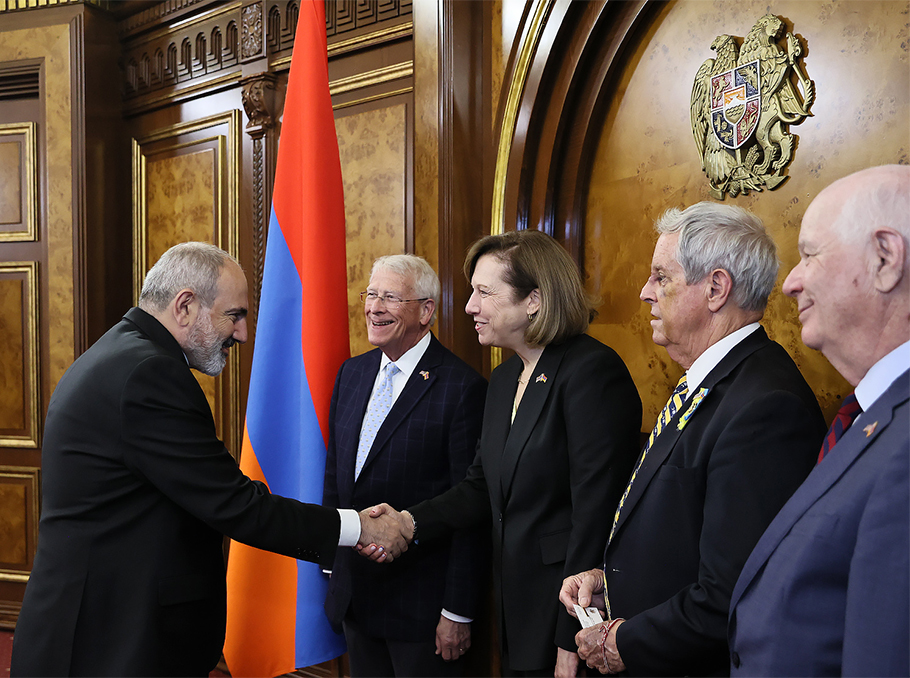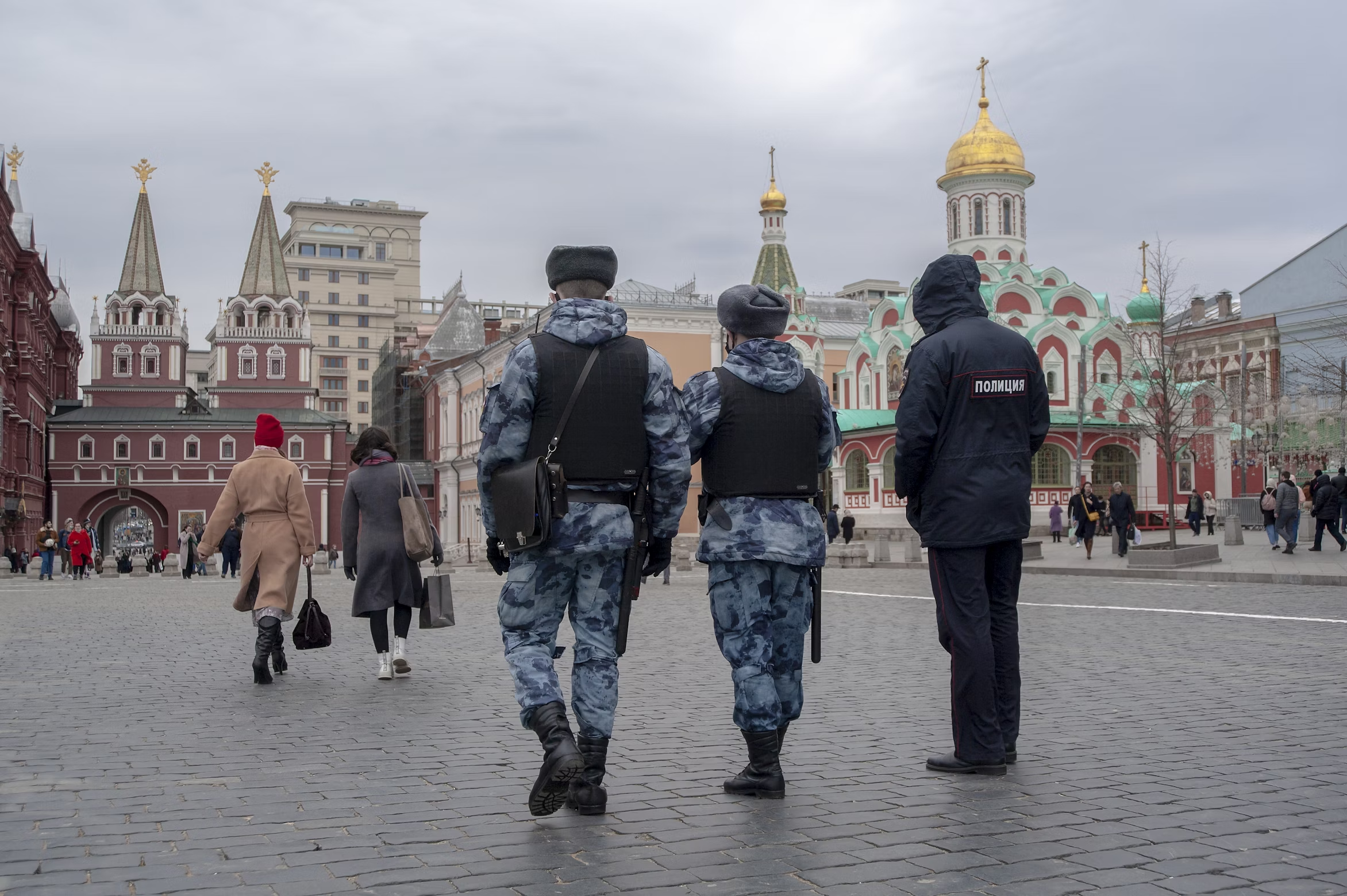By John Finerty, Staff Advisor
According to the official version from Moscow, the secessionist war in Russia’s North Caucasus republic of Chechnya is over. A handful of irreconcilable Islamic jihadisti may be holding out somewhere in the hills, but life has returned to normal for the great majority of Chechen people.
To be sure, nowadays the most active theater of operations for the Chechen resistance appears to be the Internet. By dint of overwhelming numbers and firepower, and the use, on occasion, of brutal scorched-earth tactics (think Ireland, and the Black and Tans with more lethal weaponry), Moscow has restored a semblance of order in Chechnya and turned the reins of power over to a menacing Chechen satrap, Ramzan Kadyrov, and his small army of paramilitaries.
However, the image of normalcy – embodied in photos of Chechnya’s capital, Grozny, once again bustling with traffic and business – has proven deceptive. Guerrilla ambushes against Russian security forces, pro-Moscow militia, and local government officials still take a persistent, though numerically small, toll. Moreover, the violence — in small-scale actions and occasional large-scale armed forays — has now spread beyond the borders of Chechnya into the neighboring North Caucasus republics. The civilized world still grieves over the more than 300 children and adults who died as a result of the September 2004 assault on a school in Beslan, North Ossetia, by Chechen terrorists and their sympathizers. Further west, in Nalchik, capital of the Kabardino-Balkaria Republic, an attack in November 2005 by militant Islamic insurgents on Russian security forces and local police left approximately one hundred dead.
Directly east of Chechnya, in the Republic of Dagestan (Land of Mountains), “[K]idnappings and violence are commonplace. Firearms are ubiquitous and assassinations are a regular event” (BBC, March 2008). Many experts maintain that even without the Chechen uprising next door, and the related armed intrusions into Dagestan, this impoverished republic would still be plagued by violence and instability. In any event, pervasive corruption, together with religious and ethnic rivalries, has produced a landscape of lawlessness in which police officers have often been the target of choice.
But the republic that has reverberated most tragically with the echoes of violence in Chechnya is Ingushetia, bordering directly on Chechnya’s west. It is here, Moscow claims, that Chechen partisans and Islamic radicals have established a second front to continue their insurgency against the Russian central government. However, many human rights advocates and Ingush activists charge that Moscow’s heavy-handed response has produced a wave of violence and lawlessness against innocent citizens that is exacerbating, rather than ameliorating, the situation.
According to a June 2008 report by Human Rights Watch, “Beginning in summer 2007, insurgents’ attacks on public officials, law enforcement and security personnel, and civilians rose sharply [in Ingushetia].” These attacks, in turn, have led to brutal retaliation by the authorities and several seemingly senseless and unsolved murders of non-Ingush residents in the republic. According to the respected Russian human rights organization, “Memorial,” at least 400 persons disappeared in Ingushetia between 2002 and 2006. The effect is such, argues Human Rights Watch, that Ingushetia is beginning to resemble the Chechnya of former years.
The situation in Ingushetia was exacerbated in 2002 when Moscow replaced the popular president, retired Lt. Gen. Murad Aushev, with a Kremlin favorite who is disliked by many residents for his repressive policies and inability to deal with the growing disorder in the republic. At this time, a petition campaign is taking place in Ingushetia to have Aushev restored to his post.
Against this backdrop, the Commission on Security and Cooperation in Europe held a briefing on June 19th, 2008, entitled “Ingushetia: Russia’s New Hot Spot in the Caucusas.”
The former head of the Chechen-Ingush office of the Russian human rights organization “Memorial,” Eliza Musaeva, stated that since 2004, the year of the Beslan tragedy, Ingushetia has become unofficially a venue for Russia’s counterterrorism operations, and subsequently a “hotbed of kidnappings.” In response to the guerrilla attacks against government officials and facilities, she maintained, local law enforcement and security personnel frequently arrest innocent citizens for terrorism and try to physically coerce confessions out of them. However, when cases go to trial, juries sometimes refuse to convict, which has led to a change in police tactics.
“They simply kidnap and kill those people who otherwise would have gone on trial,” Musaeva stated, “and these murders do not occur in the middle of the night. They occur in broad daylight.” Moreover, “When families seek investigation of the murders of loved ones by police,” she said, “the deceased are accused of resisting arrest.”
In November of last year, a six-year-old boy was killed by security forces during a raid on a home in search of militant Islamic insurgents.
Grigory Shvedov, editor of the daily news website “KAVKAZSKY UZEL” (CAUCASUS KNOT) presented a picture of the North Caucasus as a region of diminishing federal control in Russia. The ruling elites make a show of loyalty to Moscow, but essentially run their bailiwicks as they see fit, i.e. with an enormous level of corruption. According to Svedov, the improper collection of taxes, lack of an independent judiciary and absence of political and legal freedoms, is radicalizing the populations of the North Caucasus regions, in some cases turning them to religious radicalism. In reality, he stated, “we see that active resistance is something which is really, really spread in the region.” The rebels, he said, were not numerous – perhaps 200 in Ingushetia — nor well organized, but they enjoyed significant and growing support from the civilian population (illustrating a familiar cycle in low-intensity conflicts: harassment and brutality by government forces against a civilian population suspected of supporting the resistance, creating increased popular support for the resistance because of the mistreatment meted out by the government forces.)
Magomed Mutsolgov, chairman of the Ingushetia-based NGO “MASHR” (“Peace”), discussed the territorial conflict that broke out with North Ossetia in 1992 and the approximately 14,000 refugees left homeless as a result. According to his statistics, one hundred fifty-eight people have disappeared in Ingushetia since 2002, and over 700 have been murdered. “Unfortunately,” he continued, “we have a lot of evidence that indicates that in the vast majority of those incidents, the law enforcement agencies were involved.”
Mr. Mutsolgov, whose brother disappeared in December 2003, stated that none of the criminal cases instituted after a kidnapping have been completed. There had been a considerable drop-off in the number of kidnappings over the last 12 to 18 months, he pointed out, but this welcome statistic has been offset by an increase in the number of murders. “All of this is made possible by the fact that officers of the law enforcement who participate in kidnapping and murders are above the law,” he charged.
In late July, an employee of the “MASHR” website, Zurab Tsechoyev, was abducted from his home and severely beaten by unknown persons who questioned him about the publication on the internet of a list of FSB operatives in Ingushetia.
During the question and answer period, some of Mr. Mutsolgov’s points were challenged by a member of the audience who is a native of North Ossetia, an indication that not all public discontent is directed exclusively at Moscow, (although the genesis of the territorial dispute between Ingushetia and North Ossetia goes back to Stalin’s policy of juggling of ethnic groups and geo-political boundaries).
The reports of sporadic ambushes and bombings, security sweeps, disappearances, and extrajudicial killings that continue to emerge from the North Caucasus confirm the picture painted by the Commission panelists. The weekly tolls of dead and wounded may be insignificant when compared with those at the height of the Chechen wars but, to use the phrase that Mikhail Gorbachev once applied to Afghanistan under Soviet occupation, the North Caucasus has become a “bleeding wound” that Moscow appears powerless to stanch.










